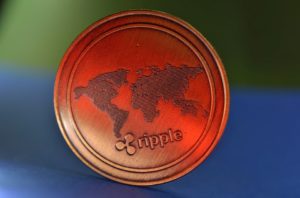
Is Ripple Really a Cryptocurrency? If Not, What Exactly is It?

Is Ripple a real cryptocurrency? Depending on who you ask, the answer will be different. According to a tweet by BitTorrent creator Bram Cohen, Ripple is nothing more than an old idea rehashed.
Ripple isn’t actually a cryptocurrency, it’s a centralized token accounting system, of the sort which any idiot could have set up 20 years ago.
— Bram Cohen (@bramcohen) July 3, 2018
For all intents and purposes, the technology powering Ripple is similar to the likes of the original cryptocurrency, Bitcoin, and most altcoins. However, when you delve deeper into the system and look at ways Ripple has evolved, there are reasons it could be classed as a pseudo-cryptocurrency.
To know the answer, it’s important to ask what is Ripple? In simple terms, Ripple isn’t a blockchain. It uses a consensus protocol. When a payment/transfer is made, the data is given a single value using a HashTree. A HashTree basically splits data into keys and associated hashes. The hashes are stored in a “tree” (or “trie”), while the actual keys are stored at the final nodes of the trees. In other words, nodes store the keys, which are then compared against the hashes in the tree. If the information matches, the transaction is validated and processed.
Boiling the Ripple payment process further, it looks like this:
- Someone sends a transaction.
- The information is given a single value and sent out to a shared public database.
- Validating servers (nodes) compare the information.
- If separate servers report a match (i.e. there is a consensus), the transaction is authorized and processed.
Ripple: The Blockchain that’s Not a Blockchain

As you can see, the way Ripple works is similar to a blockchain in the sense that multiple nodes are used to process a transaction. However, the system doesn’t use proof of work like Bitcoin. Proof of work is a process whereby miner on the Bitcoin blockchain completes a complex equation. Once the work has been shown, the block is accepted into the blockchain and the transactions within it are processed.
Instead, Ripple’s model is consensus-based. The data is transmitted to the validating servers and, once consensus is reached (i.e. they all shows the same data), the transaction is cleared. Based on this, the Ripple network can process 1,500 transactions per second (tps). Bitcoin can handle between three and six tps, while Ethereum can achieve 15 tps. This efficiency and speed is the main reason banks and major payment processors are exploring the uses of Ripple.
xRapid’s Speed Makes Ripple a Hot Commodity
Through the xRapid platform, banks can use the Ripple coin (XRP) to move money across borders. Under SWIFT banking system, cross-border payments have to go through multiple parties before they’re validated. Whenever you have to connect more than two dots, processing times increase. With xRapid, financial institutions can use XRP as an on-demand liquidity source. In practice, this means financial transactions can be turned into a digital asset (XRP) and then processed via the Ripple network.
Because Ripple is borderless, it doesn’t need to go through multiple parties. In tandem with the inherent speed of Ripple, this means cross-border payments and large transactions can be processed a lot faster, which is why banks are hot on it.
For those that want to buy Ripple, this is great news as it’s buoyed the price of XRP over the last two years. However, there are some issues that crypto purists don’t agree with. As Anatoly Castella, CEO of Elpis Investments, said in a July 19 interview with the Express: “[Ripple doesn’t fall under] the purest interpretation of cryptocurrency.”
A Decentralized System with a Single Point of Authority

So Ripple isn’t exactly a blockchain. Additionally, Ripple isn’t decentralized. Yes, anyone can become a validating server (node), which means that there isn’t a single point of authority. But the developers of Ripple hold a Unique Node List (UNL). On the one hand, this protects the system and users from rogue operators. On the other, it means that Ripple can technically control which servers are accepted onto the network (so it’s a central authority). What’s more, Ripple only recognizes recommended gateways that follow established financial regulations.
You’ve basically got a network that’s decentralized but only on the surface. Perhaps even more important than this is the fact XRP isn’t mined. Each BTC added to the system is done through Bitcoin mining (coins are the reward for processing a block). This system isn’t controlled and there is a finite number of tokens that can be issued. In contrast, XRP was manufactured. When Ripple went live in 2012, the developers released 100 billion XRP tokens. Once again, this raises the issue of control. What’s more, the Ripple network doesn’t need XRP to function. In fact, Ripple’s own chief marketing strategist, Cory Johnson, told Yahoo Finance in June that “there was no value assigned to the most basic layer of the technology [XRP].”
While BTC is intimately linked to the processing of Bitcoin transactions, users on the Ripple network don’t need XRP tokens. In this sense, Ripple is merely a crypto-like transactional system and not a cryptocurrency. However, as the industry evolves, lines are being blurred. For those loyal to Bitcoin’s original system, Ripple isn’t a cryptocurrency. However, for those entering the market as investors, XRP does have a place in the crypto space. Is Ripple a real cryptocurrency? Technically, it’s not. But, if you’re looking for a crypto investment that something of a hybrid, many will say it’s a good idea to buy Ripple.
Featured image source: Flickr